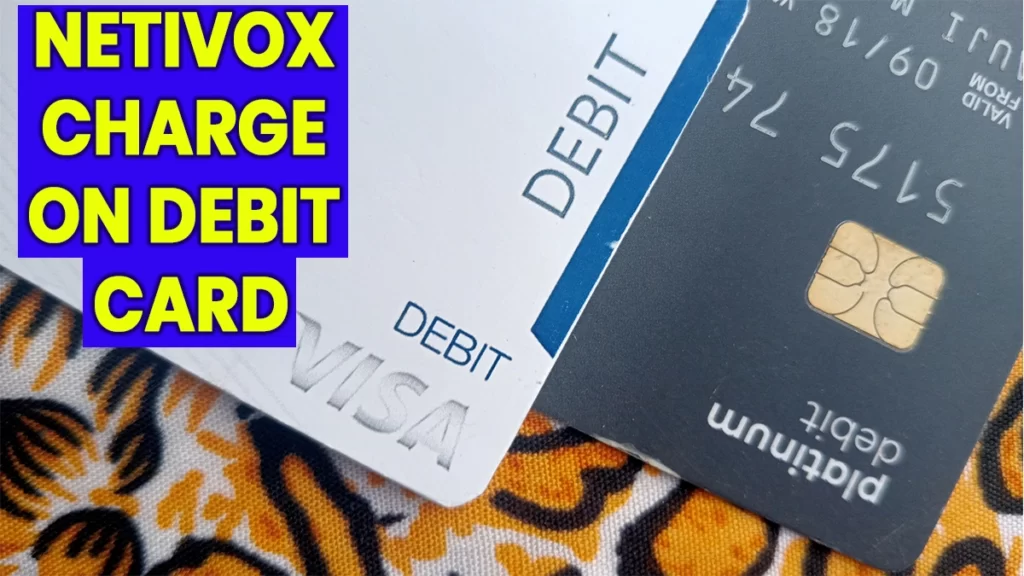With the rise of online transactions and digital payments, you know debit cards have become a popular mode of payment for people across the world.
It is big benefit debit cards offer several benefits, such as convenience, ease of use, and enhanced security. However, sometimes people face issues with their debit cards, such as unexpected charges.
One such charge that has been the subject of debate and discussion is the Netivox charge on debit cards.
In this article, we will explore what Netivox is, why it charges debit cards, and how to avoid or dispute the charges.

What is Netivox?
Netivox is an online service provider that offers various services related to credit monitoring and identity theft protection.
Netivox is a subsidiary of the company EZ Shield, which is a provider of identity theft protection services.
Netivox offers services such as credit monitoring, identity theft protection, and fraud resolution.
The company claims to use advanced technology to monitor credit reports and identify potential fraud or identity theft.
Why does Netivox Charge on Debit Cards?
Netivox charges on debit cards can be confusing for many people. The reason for these charges is that some banks offer Netivox services as an added feature to their debit card users.
Banks partner with companies like Netivox to offer identity theft protection services to their customers.
In return, these companies charge a fee, which is added to the customer’s debit card statement. The fee varies depending on the bank and the level of Netivox service offered.
In some cases, customers may have signed up for a Netivox service without realizing it. This can happen when a customer opens a bank account and applies for a new debit card.
The bank may include Netivox services as a default feature or as part of a package deal. Customers do not realize they are being charged.
It can be a big problem. Customers do not know about it until they see the charge on their debit card statement.
How to Identify Netivox Charges on Debit Cards?
Netivox charges can appear on debit card statements in different ways, depending on the bank and the type of Netivox service offered. Some common ways Netivox charges may appear on debit card statements.
With includes “Netivox,” “Netivox Membership,” “Netivox ID Theft Protection,” or “Netivox Credit Monitoring.”
If you see a charge on your debit card statement that you do not recognize. You should contact your bank immediately to inquire about the charge.
How to Avoid Netivox Charges on Debit Cards?
If you do not want to be charged for Netivox services. You should first check if your bank offers Netivox services as part of its debit card package.
If your bank does offer Netivox services, you may have the option to opt out of the service. You can do this by contacting your bank’s customer service department and requesting to opt out of the Netivox service. You may be required to provide a reason for opting out. It happens in some cases.
If you are opening a new bank account or applying for a debit card. Make sure to read the terms and conditions carefully. Look for any mention of Netivox services and understand the terms and fees associated with them.
If you do not want to sign up for Netivox services. It is important to make sure to opt-out during the application process.
How to Dispute Netivox Charges on Debit Cards?
If you see a Netivox charge on your debit card statement that you do not recognize or did not authorize, you should contact your bank immediately.
Explain the situation to your bank’s customer service representative. It provides any relevant information or documentation to support your claim. Your bank will investigate the charge and determine if it is legitimate or not.
If the charge is found to be illegitimate. Your bank will reverse the charge and refund the amount to your account. If the charge is legitimate. You still want to dispute it. After that, you can file a complaint with the Consumer Financial Protection Bureau (CFPB).
The CFPB is a government agency that helps consumers with financial disputes and complaints. You can file a complaint online through the CFPB’s website. You can complain by calling their toll-free number.
Conclusion
Understanding Netivox charges on debit cards is crucial to avoid unexpected charges. Customers should check if their bank offers Netivox services, opt-out if necessary, and dispute any unauthorized charges of card promptly. By doing so, they can protect themselves from financial losses and ensure safe and secure online transactions.
FAQ’s
Are Netivox charges on debit cards mandatory, or can I opt out of them?
Netivox charges on debit cards are not mandatory, and you can opt out of them.
Are there any alternatives to Netivox services for identity theft protection?
Yes, there are several alternatives to Netivox services for identity theft protection, such as LifeLock, Identity Guard, and Experian IdentityWorks. Customers should research and compare different options before choosing an identity theft protection service that best suits their needs and budget.